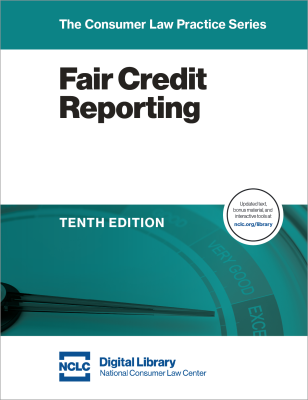Creditors, debt collectors, and other “furnishers” of information supply billions of pieces of data each month to the three nationwide consumer reporting agencies (CRAs)—Experian, Equifax, and TransUnion. The information is almost always reported using a standard electronic data reporting format issued by a trade association, the Consumer Data Industry Association (CDIA). This format is called Metro 2 and consists of multiple fields and shorthand codes. The Metro 2 manual (the Credit Reporting Resource Guide) and other CDIA ad hoc guidance set out instructions on using the Metro 2 format.
An important question is what is a furnisher’s liability for failing to supply information in compliance with Metro 2. When does such non-compliance with the Metro 2 format lead to the furnisher violating the Fair Credit Reporting Act?
Metro 2 is considered the standard format for the credit reporting industry and is essentially ubiquitous. It has been designed so that information vital to the preparation of accurate consumer reports is identified and defined in a manner to facilitate the routine provision of accurate and complete information. Nevertheless, Metro 2 remains only a private industry guide.
Subsection 6.4.2.5 of NCLC’s Fair Credit Reporting is newly updated, revamped, and expanded, discussing the legal status of the Metro 2 format and its relationship to a furnisher’s duties under the Fair Credit Reporting Act. The subsection reviews several dozen court decisions, most of which have held that Metro 2 is not a “national, legally enforceable standard” that does not create per se liability for any furnisher that merely fails to adhere to its protocols. Instead, whether a creditor or other furnisher can be held liable for its failure to comply with the Metro 2 format depends on showing that the deviation would materially mislead potential creditors and other users of a consumer report. The section also discusses important CFPB guidance and enforcement actions involving the Metro 2 format.
Legal duties of creditors and other furnishers of information to consumer reporting agencies is more generally discussed at NCLC’s Fair Credit Reporting Chapter 6 (9th ed. 2018) (2 volumes), updated digitally at www.nclc.org/library. Chapter 11 (pre-filing considerations) and Chapter 12 (litigating FCRA cases) provide information and guidance on bringing private FCRA claims. The treatise’s digital version also includes sample pleadings, discovery, and other FCRA litigation documents, generally in Word format, as well as reprints of key primary source material.



